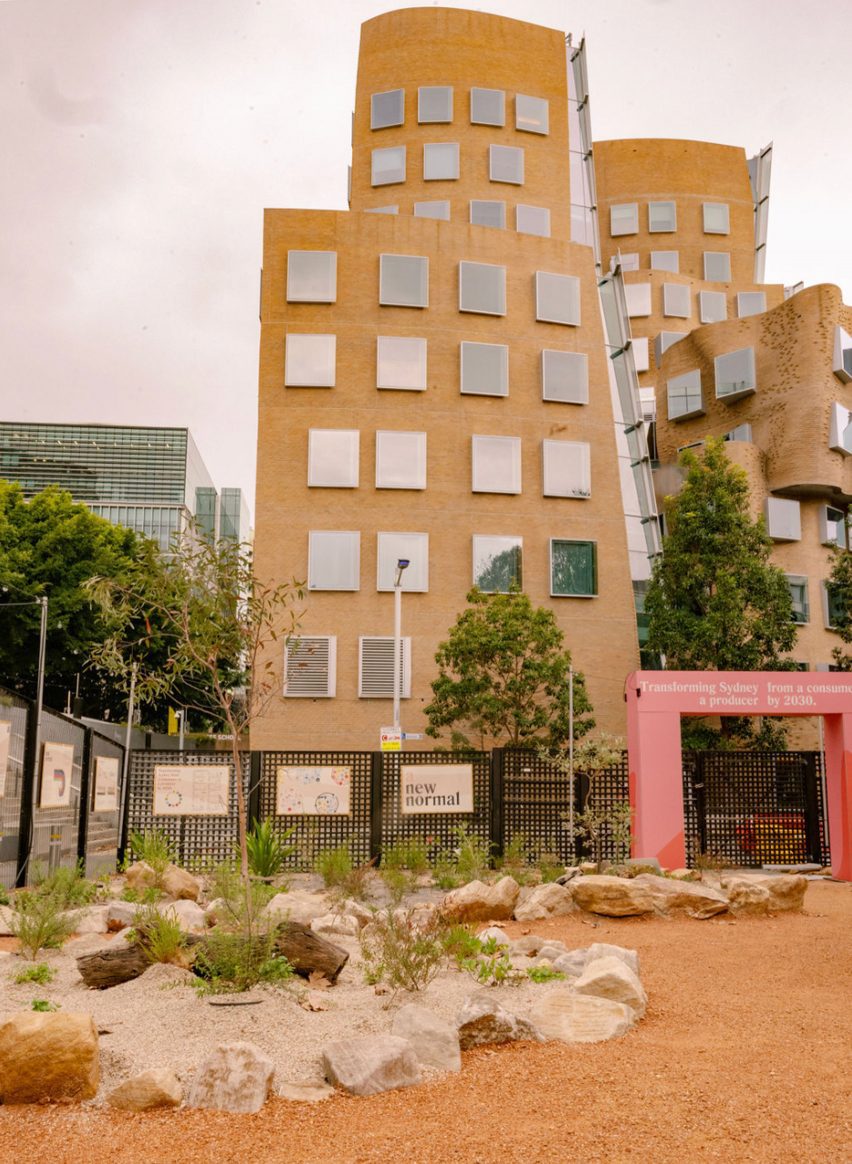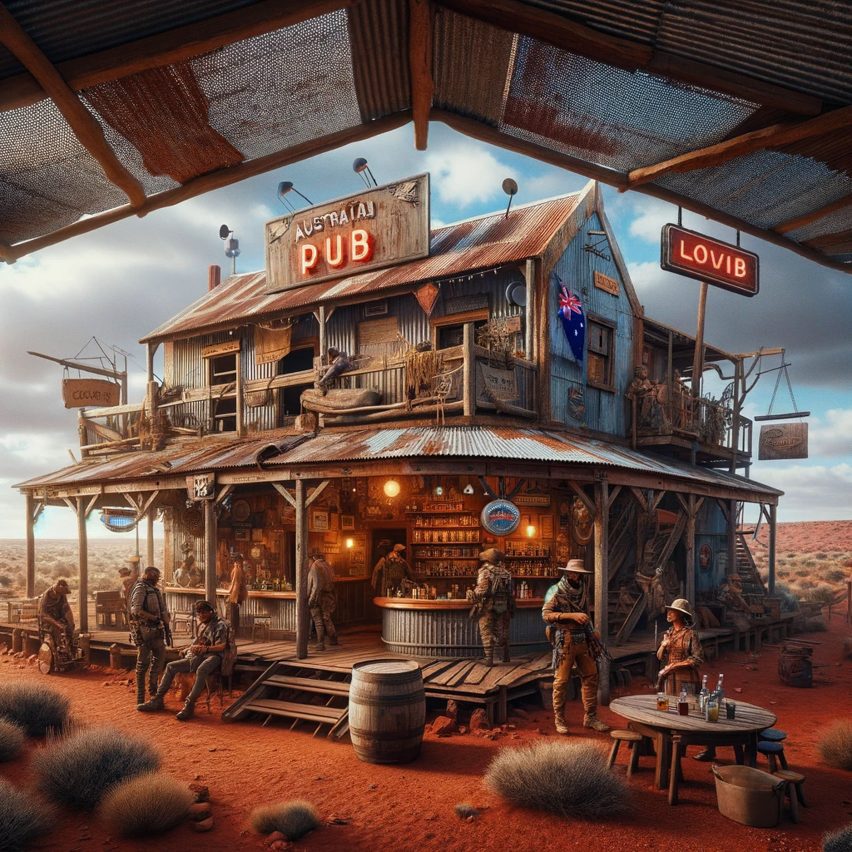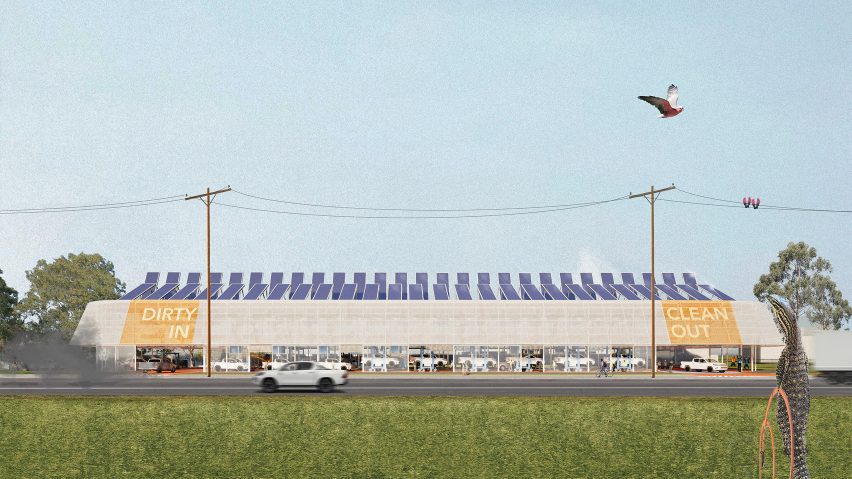The A New Normal exhibition has presented designs that aim to transform Sydney into a self-sufficient city, including a pub making beer from recycled wastewater.
On show at the Powerhouse Museum in partnership with the annual Vivid Sydney festival, A New Normal included an exhibition and a solar-powered pavilion that served as a community meeting place.
More than fifty designers, architects, developers, technologists, brands and architects from Sydney were invited to come up with new solutions to solve some of the Australian city's most persistent challenges.

The resulting concepts aim to provide solutions that could transform Sydney from a consumer of water, energy and other commodities to a self-sufficient producer of the same resources within 10 years.
The project was led by the Sydney director of eco research lab Finding Infinity, Jess Miller.
It paired creative studios with developers to come up with concepts that address specific issues and could pay for themselves within ten years with minimal policy reform.

Among them was The Last Pub on Earth, a collaboration between non-alcoholic beer company Heaps Normal and Sydney Water, which imagined a Mad Max-like world where water becomes an extremely scarce resource.
The pub would offer a non-alcoholic beer made from recycled wastewater.
The Forever Car concept, meanwhile, envisions a future where you can deliver your combustion engine cars to the Forever Car workshop in Western Sydney and upgrade them into clean electric cars in eight hours – while simultaneously having the old seats re-upholstered.
Architects from Neeson Murcutt Neille led the design for the project in collaboration with electric vehicle software provider RoEV, accounting firm KPMG and electricity distributor Ausgrid.
The ambition of the Forever Car concept is to process 60 to 80 cars per day in a circular, solar-powered production sequence.
The workshop would also partner with a vocational training provider to develop the skills required in a new generation of mechanics and support the automobile industry through the transition.
"A particularly timely challenge for Sydney is some of the shorter-term 'meanwhile' transport challenges surrounding Western Sydney," said Miller. "So one of the concepts addressing these issues is 'The Forever Car'."
"This idea would provide a solution for the commonly-owned, and expensive-to-run cars like Hiluxes and Camrys to undergo an engine upgrade to enhance performance and avoid waste," she continued.
Cathy Smith and Philip Oldfield from School of Built Environment, University of New South Wales, together with James Hargrave from design studio Abstract8, designed Randwick Creative Ward.
The concept aims to revitalise long-term vacant hospital spaces to accommodate creative and entrepreneurial communities.
It showed the transformation of a hospital ward at the Randwick Health and Innovation Campus (RHIP) into a MedTech startup and creative studio.
Following biophilic and wellbeing design principles, long dark hospital corridors would become communal streets, and demountable workstations made of sustainable timber would be placed near windows to improve thermal efficiencies while inviting natural views and daylight.
Former bedside cabinets would become studio tables and X-ray light boxes would be used to showcase creative works, while IV drip holders would support neon lighting.
According to Miller, while many of these concepts address problems specific to Sydney, the whole point of A New Normal is to approach the types of challenges in ways that can also be applied elsewhere.
The real challenge of realising these concepts is "inertia from decision-makers and an unwillingness to try different approaches," she said.
"Sometimes the things that prevent these kinds of projects becoming a new normal are outdated planning controls or policies, sometimes it's finance; often it's cultural," Miller stated.
She believes the first step in turning these ideas into reality is to build them as small-scale prototypes that are presented to the public to gain their support, then turn them into pilot projects that could inform policy in a pragmatic way.
"It's only in the implementation of new ideas and ways of doing things that you create a practical understanding of the challenges and can in turn provide insight to decision- and policy-makers whose job it is to enable us to achieve the targets that they so often talk about, and in a way that invests government money into a public good," said Miller.
The A New Normal Sydney exhibition follows the success of the A New Normal initiative in Melbourne in 2021.
Led by Ross Harding, A New Normal Melbourne presented 15 prototypes to transform Melbourne into a zero-carbon city by 2030. Eight of these were adopted and three have been completed so far.
The photography is by Nic Walker unless stated otherwise.
A New Normal was on show from 24 May to 15 June 2024 as part of Vivid Sydney. See Dezeen Events Guide for an up-to-date list of architecture and design events taking place around the world.

